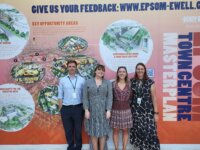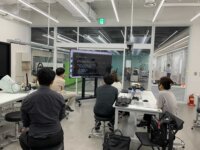The Future Tech Challenge (FTC) is a pilot initiative led by DPER to connect and collaborate across the wider ecosystem, and engage in transformative innovation by experimenting with, and applying new technology to address pressing public sector problems and opportunities that deliver improved services to the public. Drive innovation using emerging technology, enhance collaboration, meet National strategic priorities, generate knowledge & learnings and develop prototyped solutions.
Innovation Tag: Citizen Engagement
Case Study
Dialogue between the city & its people: guide to civic participation in public space projects
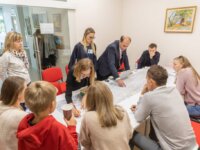
By involving the public in the design of public spaces (parks, plazas, streets etc.) municipalities can create spaces that better suit society's interests. According to the data, 58 out of 60 municipalities in Lithuania recognize the benefits of public participation, but 50 % of them say they don't have the knowledge for it. The guide "Dialogue between the city & its people" is a step-by-step textbook for municipalities that helps execute the participation process from start to finish.
The PropTech Engagement Fund was launched in 2021 and has worked with 41 Local Authorities to date on accelerating the adoption of digital citizen engagement tools and transforming community involvement in placemaking. Our ongoing programme is the largest UK Government PropTech Programme, leading on how to work with industry, tech start ups and local governments to increase the diversity and positivity of placemaking conversations and to fast track new digital policy and local housing delivery.
Council to the street is an innovative strategy to strengthen democracy through citizen participation. It is a strategy that brings the city's institutions out to listen and respond to citizens in public spaces. Citizens identify their priority needs and requirements and in a public session the Council and the Mayor's Office respond to them. The citizens should be the overseers of the commitments reached in the space. During the process the citizenry is strengthened and accompanied.
Citizens' assemblies (CAs) were incorporated in the new Law on Municipalities in 2005. As an opportunity to strengthen participatory processes, and to improve participatory decision-making methods at local level, Participation Task Forces (PTFs) were established. The innovative nature of the PTFs is that for the first time elected municipal councillors, appointed municipal officials, and representatives of CAs worked together on developing participatory policy proposals for their municipality.
In 2017, Korea opened the online platform allowing the public to make policy suggestions, ‘Gwanghwamun 1st street’ as an effort to expand Direct Democracy. Following this lead, Gwanak-gu developed its own online platform, ‘Online Gwanak-gu Office’. ‘Online Gwanak-gu Office’, which is exclusively for Gwanak-gu citizens, utilized user participation during development, and its innovation comes from the integration of various existing public participation routes.
In an increasingly digital world, Participa.gov represents our vision for civic participation in political decision-making processes. Participa.gov is the Portuguese Public Administration's centralized, cross-cutting platform for facilitating participatory processes at all levels of government. It employs cutting-edge technology to ensure that citizens can actively participate in policy decision-making via secure and transparent mechanisms that foster trust.
Case Study
National AI supercomputing platform deployed and offered to start ups through a public call
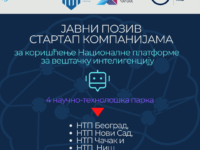
Recognising the importance of artificial intelligence as well as the innovative capacity of start-ups, to support the development of innovative products and ideas, the Government of Serbia deployed a national supercomputing AI platform and offered its resources and trainings free of charge to innovative companies and startups through a public call for proposals.
Small and medium-sized companies often cannot afford investments in Artificial Intelligence technologies. Through AI Friends project, AI became more accessible, affordable, and familiar for entrepreneurs and citizens. AI festival, training, co-working spaces, and pilot solution consulting is operated through the cooperation of universities, research institutes, industries, government, and citizens over the last four years.
Case Study
A co-created Philosophy of Care for the development and establishment of the new Urgent Mental…
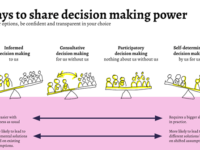
When planning began for a first-of-its-kind Urgent Mental Health Care Centre as an alternative to a failing emergency department experience, a new standard that centred people with lived experiences in system reform decisions was needed. People with lived experiences came together to co-create a philosophy of care for the centre that would uphold service integrity, hold implementation providers accountable, and communicate the care experience and service culture that people expect.

